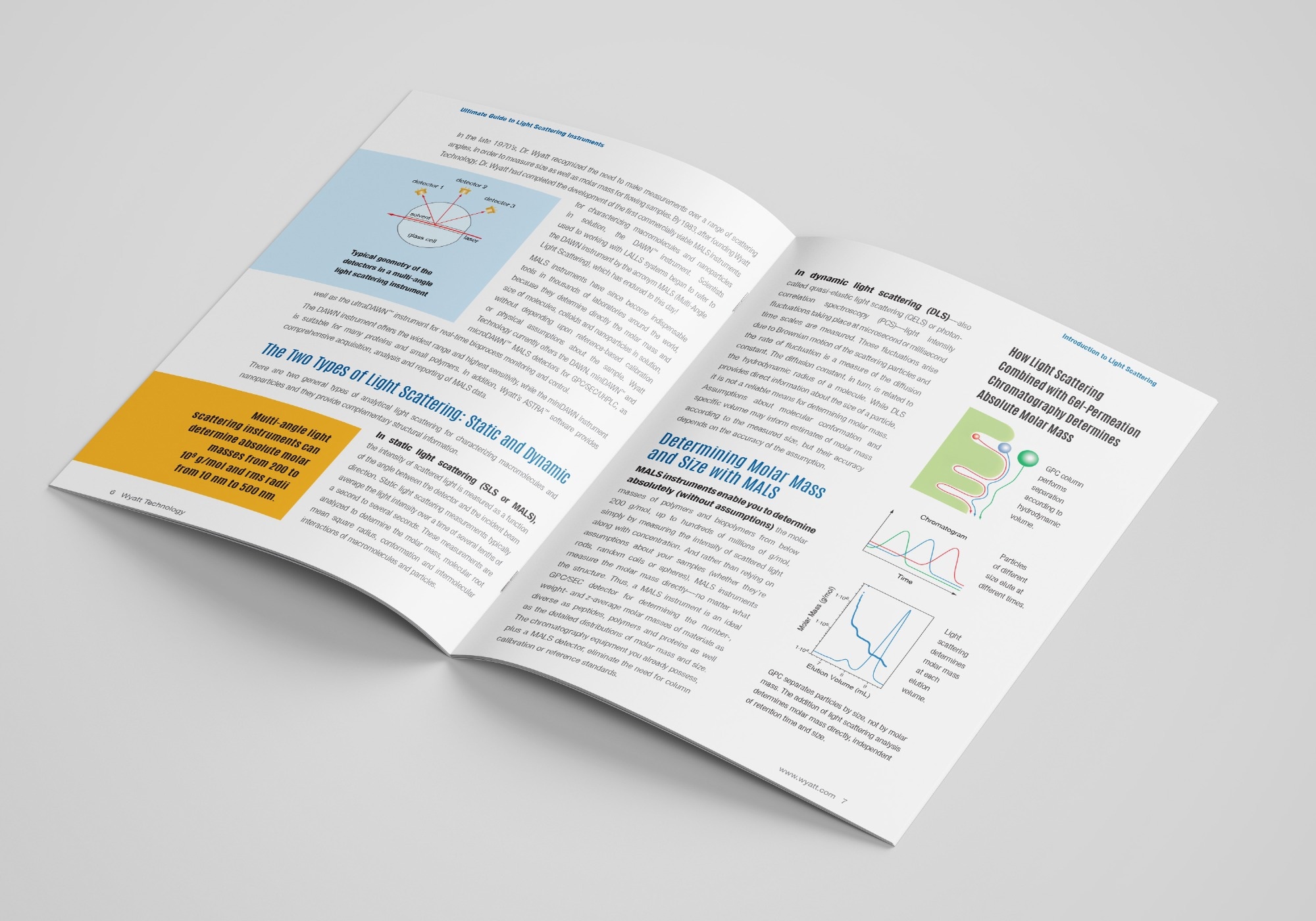This guide provides a practical overview of light scattering technologies and how they’re used to analyze molecules, particles, and polymers in solution. Whether you're new to Multi-Angle Light Scattering (MALS) or looking to upgrade your system, it offers clear, useful insights to help inform your decision.

Key Topics
- Core Principles of Light Scattering: Understand the basics of Static Light Scattering (SLS) and Dynamic Light Scattering (DLS), and how these complementary techniques work together to deliver comprehensive molecular data.
- Measurement Capabilities: Learn what today’s instruments can measure—including molar mass (200 Da to 1 billion Da), particle size, molecular shape, branching, zeta potential, and molecular interactions like binding affinity and stoichiometry.
- Technology Background: A look at how light scattering has evolved from early single-angle systems (like LALLS and RALLS) to modern MALS instruments pioneered by Dr. Philip Wyatt.
- Instrument Features and Benefits: Explore the advantages of MALS systems: no reliance on standards or assumptions, compatibility with GPC/SEC, modular upgrades like DLS and temperature control, and powerful analysis using ASTRA™ software.
- Application Areas: See how light scattering is used in biotechnology, pharmaceuticals, materials science, nanotechnology, and polymer research.
- What to Consider Before Buying: Get guidance on evaluating instruments based on factors like detector design, software transparency, calibration methods, training availability, and technical support. Includes an overview of Wyatt Technology’s services and global support network.

 Download the full eBook now to learn more!
Download the full eBook now to learn more!


This information has been sourced, reviewed and adapted from materials provided by Waters | Wyatt Technology.
For more information on this source, please visit Waters | Wyatt Technology.